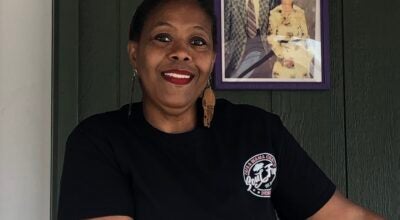40 Under 40 Awards place local man in ‘Top 4’
Published 2:21 pm Thursday, August 29, 2019

- Jarrod McCarthy
|
Getting your Trinity Audio player ready...
|
Kuanita E. Murphy, publisher and editor-in-chief of Rural Leader Magazine has announced that the 6th Annual 40 under 40 Honors Luncheon will be held Sept. 5, at Albany Technical College-Kirkland Conference in Georgia. During the Honors Luncheon, 40 exceptional young leaders from Alabama, Florida, and Georgia will be recognized. The 40 honorees will be included in Rural Leader Magazine’s September 2019 edition with the top four featured on its cover.
This year’s top four 40 under 40 includes Jarrod McCarthy from Montezuma. The 2019 Forty under Forty Winner will be announced during the Honor Luncheon. Rural Leader Magazine is a digital publication with a mission to highlight leaders from small rural communities globally. Please see the website for ticket information (RuralLeaderMag.com).
Jarrod McCarthy works at River Valley Regional Commission (RVRC) Americus, which serves a 16-county region and its local governments with development and transit services. Development entails replacing antiquated infrastructure like water, storm water, and sewage systems to alleviate health risks to the public, which he says are much more widespread in rural areas than most realize. These efforts also establish adequate pressure for fire protection, which is often lacking. Economic development focuses on establishing new infrastructure of these sorts, or roads, rail, or airport improvements in order to recruit new industry or retain current industries and small businesses. Other activities include repairing or rebuilding deteriorated private housing, and obtaining police and fire protection vehicles and equipment.
Outside of development, McCarthy administers Department of Human Services transit across 13 counties to aid the elderly in accessing senior centers, medical facilities, and other resources while also providing low income individuals with access to job interviews, training, and a reliable means of traveling to work.
These critical endeavors are funded by government money that McCarthy competes for, often by composing applications that are hundreds of pages long and span several areas of expertise. He has secured $15 million for the region he serves, $8.2 million of which is for the development (non-transit) purposes noted above. The latter alone have impacted 7,575 people while also creating 163 jobs and retaining another 208.
In pursuing these development grant funds for local governments, McCarthy has experienced rare success. Using one the most popular sources, Community Development Block Grants (CDBGs), as an example, only 44.7 percent of applicants were awarded funding across the state in 2017. Nearly twice that many of McCarthy’s CDBG applications have been successful in recent years, with nine of his last 11 being funded. His last CDBG application was used by the Department of Community Affairs at the annual statewide training event as an example of how a grant application should be composed.
For his work in these fields, McCarthy has received five national level awards, a letter of accommodation from the Georgia Department of Human Services, and Georgia Trend Magazine recognized a three-county regional transit system he secured funding for.
Since his first year in the workforce, he has influenced policy at the state level. McCarthy says that he is looking for new challenges though, which include recently accepting a volunteer middle management position with the Oliver Tree Foundation. The organization is a spin-off from the University of Georgia’s Paul Oliver Network which supports former UGA football players after their sports careers have concluded. The Oliver Tree Foundation will in turn serve all former athletes from any school in the nation.





